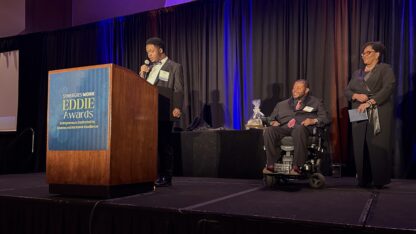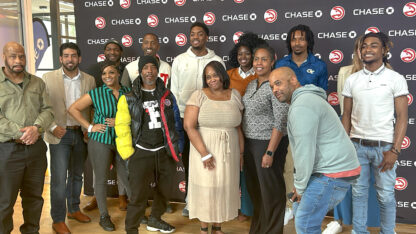Influential Atlanta women shine during Women’s History Month
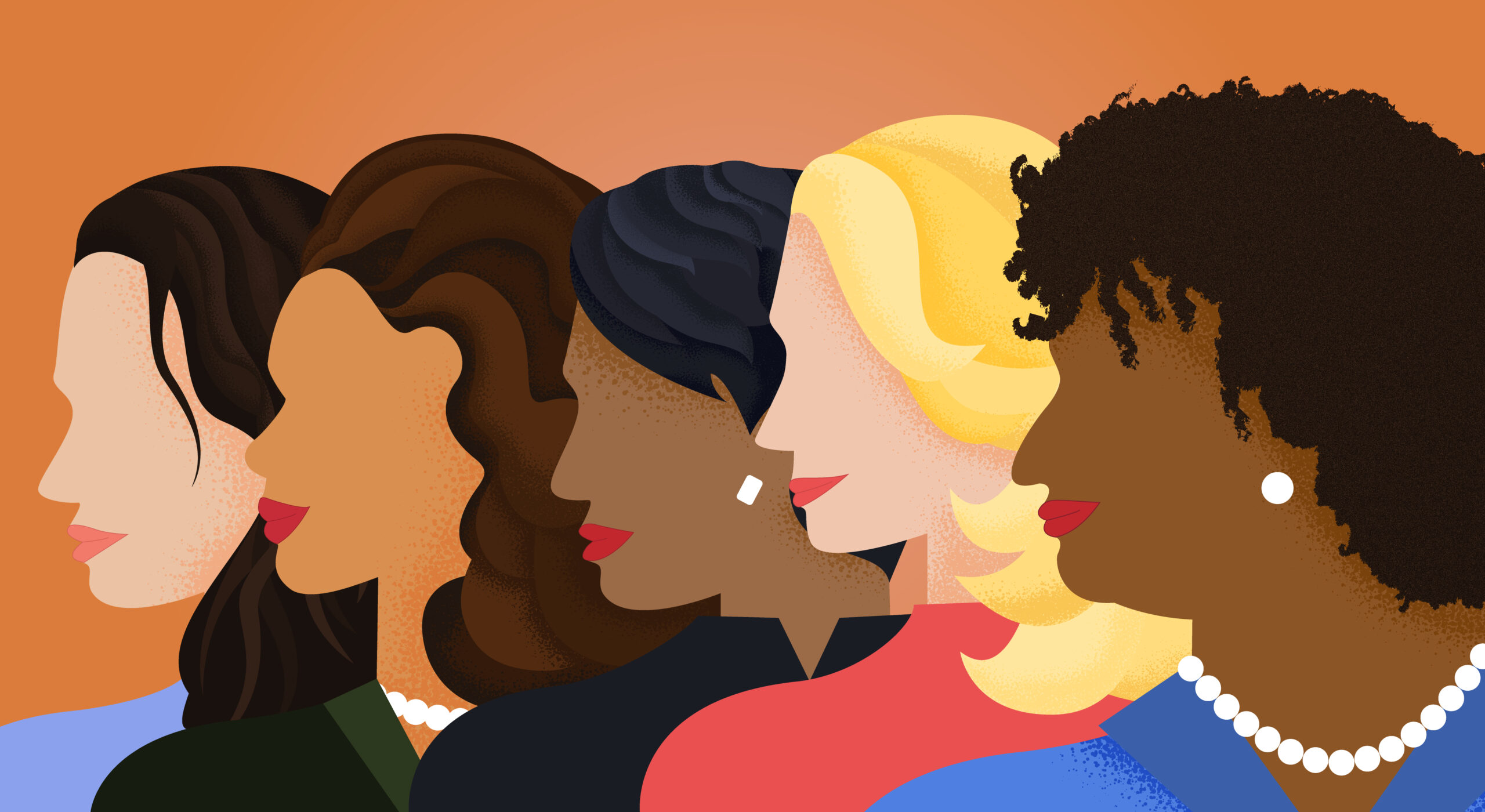
March is Women’s History Month. Get to know the stories of these noteworthy women with Atlanta ties.
: Graphics by Ankita Ackroyd-Isales
From the front lines of the Civil Rights Movement to the skies of World War II, from the local food scene to international corporations, from City Hall to national politics — women from Atlanta have been breaking ground for generations.
In honor of Women’s History Month, get to know more about these influential women with Atlanta ties: from politicians to health care professionals, writers, activists, entertainers, teachers and beyond.
And, we want to hear from you. Don’t see someone on this list who you think ought to be? Let us know here.
Activism
Aviation
Business
Culinary
Entertainment
Justice
Literature
Medicine
Philanthropy
Politics
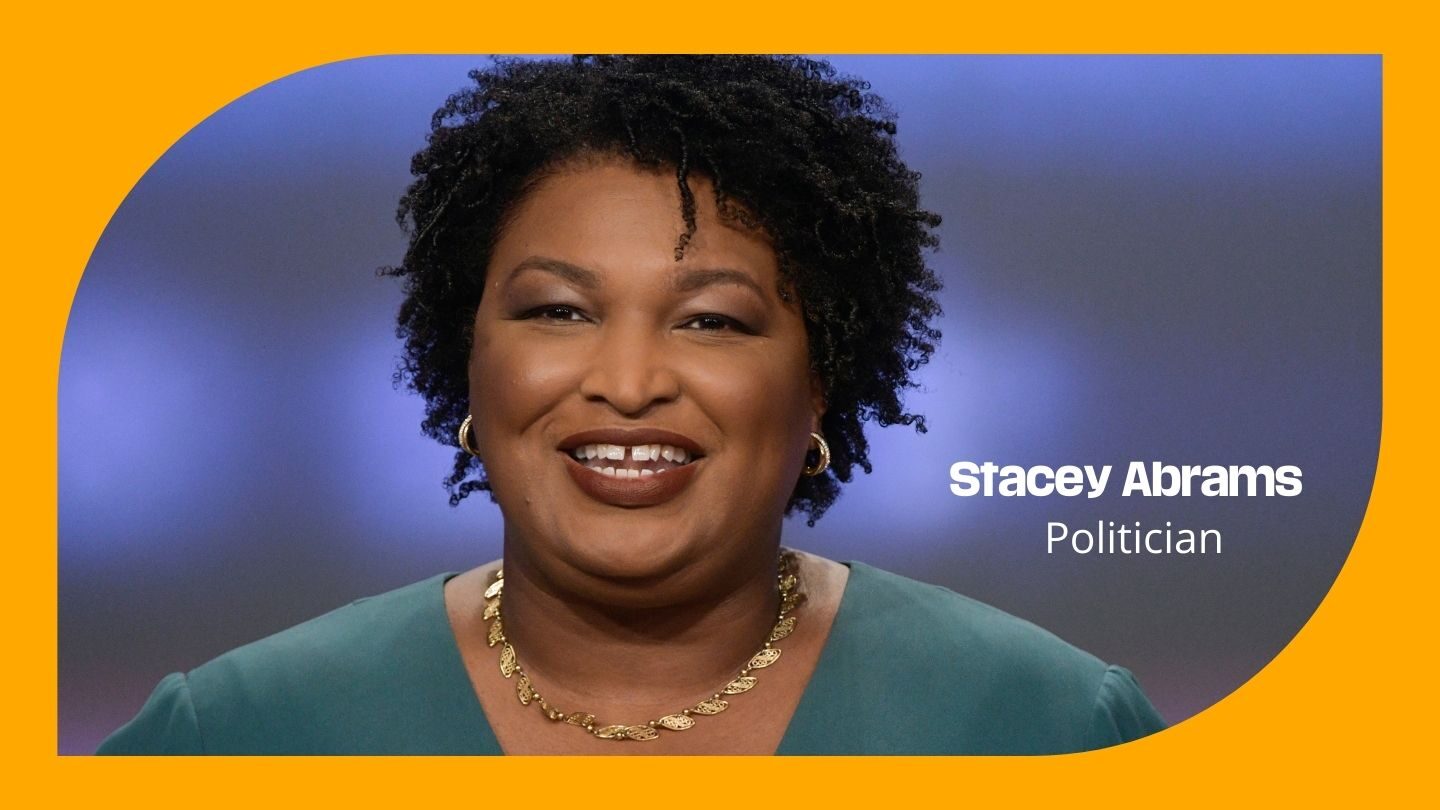
Stacey Abrams made history in 2018 when she became the first ever African-American woman to be a major party’s gubernatorial candidate.
“We must remember that we’re in the state where the red clay gives life to generations of dreamers,” Abrams said the night she won her primary race. “The state where Martin marched on ballot boxes and challenged a nation’s conscience, a Georgia that gave us the Godfather of Soul, the Queen of the Met, and sent a peanut farmer to the Oval Office.”
Before her high-profile gubernatorial bid — which brought the likes of former President Barack Obama and Oprah to the state — Abrams was the Georgia house minority leader.
Abrams is a lawyer and holds degrees from Spelman College, the LBJ School of Public Affairs and Yale Law School.
She is also the founder of the New Georgia Project, a nonpartisan organization working to engage and register Georgia voters of color.
Since the 2018 election, Abrams has remained active on the political scene. She’s been advocating for voting rights and perhaps most notably, delivered the Democratic rebuttal to President Donald Trump’s 2019 State of the Union Address.
In that speech, she used her personal story to refute the president’s policies, particularly when related to health care and immigration.
“In this time of division and crisis, we must come together and stand for, and with, one another. America has stumbled time and again on its quest towards justice and equality,” she said. “But with each generation, we have revisited our fundamental truths, and where we falter, we make amends.”
In late 2021, Abrams announced she would once again run against Brian Kemp for the role of Georgia governor.
“At the core of it, I believe in service, I believe in Georgia and this is a job that I think I’m ready and more than capable of doing and now is the time,” Abrams told WABE’s Rose Scott.
— Courtney Kueppers

Sara Blakely’s rise from selling fax machines door-to-door to billionaire businesswoman is well documented.
In 1998, Blakely cut the feet off her pantyhose, and the idea for SPANX was born, according to the company’s website. In 2000, the shapewear product landed on Oprah’s “favorite things” list and it was off to the races from there.
Today, Blakely touts a net worth of $1.1 billion, according to Forbes. Which has put her among the richest self-made women in the country.
But in the late ‘90s, Blakely was in her 20s, she had failed the LSAT twice and was working in sales.
In a 2016 interview with New York Magazine, Blakely said that experience set the stage for starting her company.
“I didn’t realize that selling fax machines door-to-door was really laying the groundwork for me to be able to be an inventor and create a product that had never been done before and bring it to market, because doing something like that requires hearing the word ‘no’ a lot,” she said in the interview.
In 2006, she founded the Sara Blakely Foundation, which she has said is meant to empower charities that support underserved girls and women.
And although SPANX’s roots are local — the company’s headquarters are in Buckhead — Blakely’s stardom has stretched internationally.
She’s been mentored by fellow billionaire, Richard Branson, having appeared on his show “The Rebel Billionaire.” She has also appeared on shows like the “American Inventor” and “Shark Tank.” She’s become a regular speaker on overcoming failure and achieving success.
— Courtney Kueppers

Keisha Lance Bottoms won the hotly contested 2017 mayoral race and became the city’s 60th mayor. The race ended in a runoff election between Bottoms and Mary Norwood.
“Only in Atlanta could a girl named Keisha, who attended Frederick Douglass High School on the west side, grow up to become the 60th mayor of the great city of Atlanta,” she said in her 2018 inaugural address.
Prior to being elected mayor, Bottoms had been a member of the city council since 2010, tackling issues like gun violence and affordable housing.
In a 2017 interview with WABE’s “Closer Look,” Bottoms talked about the importance of developing the city without displacing people from their neighborhoods — as well as expanding access to affordable housing.
“Development is important to the city, it’s the reason Atlanta is Atlanta because we have evolved as a city,” she said. “I think it’s important as mayor that I balance that. That I be a good partner with our business community but I don’t leave our communities behind.”
Bottoms said at the time it’s important that as neighborhoods grow and develop, the longtime residents of that area get to stick around and reap the benefits.
“Atlanta has to continue to be this welcoming place for all, no matter what your income level is,” she said.
Bottoms stunned the city in May 2021 when she announced she would not run for a second term. She called it a decision rooted in her faith, and pushed back at any notion that she was afraid of a bruising campaign.
“There is a divine voice that lives inside each of us … that may not make sense to anyone else … But when you know what you know, it becomes less and less important what other people think,” Bottoms said.
— Courtney Kueppers
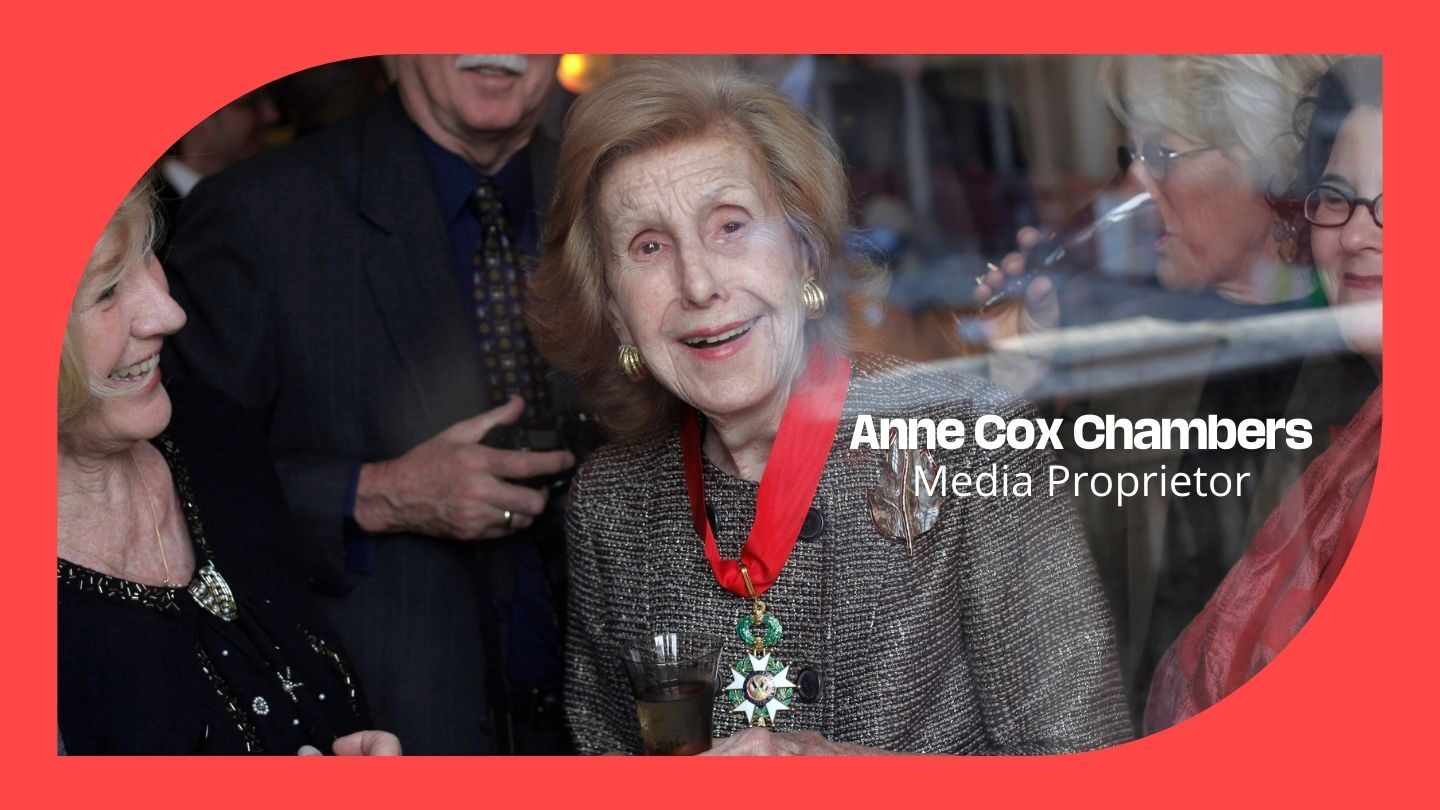
Born in 1919, Anne Cox Chambers is a media mogul, former ambassador to Belgium and one of the wealthiest people in the United States. In the photo above, Chambers smiles after being awarded “Commandeur de la Légion d’Honneur” (Commander in the Legion of Honor) at the Culture Ministry in Paris in 2009.
She’s the daughter of James M. Cox, a famed newspaper publisher, former Ohio governor and the 1920 Democratic Presidential nominee.
She inherited her father’s trusts and holds the largest ownership stake in Cox Enterprises, which owns the Atlanta Journal-Constitution, WSB-TV and other media outlets.
Chambers is consistently ranked among the richest people in America’s 50 Largest Cities by Forbes, with an estimated net worth of $17 billion.
She formerly served as chair of Atlanta Newspapers, according to Cox Enterprise’s website. She has also served on the board of The Coca-Cola Company and is a founder of the Forward Arts Movement.
In a 2011 interview with Atlanta Magazine, she said her involvement with the arts in Atlanta is one of her proudest accomplishments. She attributes her upbringing with instilling a love for the arts.
She was also raised in a political family. She campaigned on behalf of Jimmy Carter when he ran for president, then served as the ambassador to Belgium for four years during his administration.
“I never got over the thrill. If I’d go to a reception, the formality, they’d say, [The ambassador of the United States of America!’ And I’d look around and say, ‘That’s me!’ It was such a source of pride,” she told the magazine.
She also said she has followed her father’s belief that owners ought to leave the editors of their newspapers alone. And, despite her own political views, has always defended the fairness of the AJC.
Chambers died on Jan. 31, 2020, at the age of 100.
— Courtney Kueppers

Throughout her career, she has worn multiple hats including singer, songwriter, dancer and model.
On Oct. 25, 1985, Ciara Princess Harris was born in Austin, Texas. She moved to Atlanta in the early 2000s and joined LaFace Records in 2003. When her co-written, debut single “Goodies” hit the airwaves, it shot up to No. 1 on Billboard’s Hot 100 and stayed there for weeks.
The R&B singer is also known for her chart-topping hits, “Oh” from 2004 and “Like a Boy” released in 2006. Her accolades include a Grammy Award for her feature in rapper Missy Elliott’s music video “Lose Control.”
In 2004, the trained dancer taught people how to “1, 2 Step” with her hit song featuring Missy Elliott that rose to Billboard’s No. 2 spot.
Ciara has continued her music career by starting Beauty Marks Entertainment, “where music intersects with film, fashion, technology & philanthropy,” in 2017.
Her song “Level Up” was released under her recording company and peaked at No. 23 on the Billboard charts. The song’s music video, showing the performer dancing to the beat with intricate moves, has more than 151 million views on YouTube.
In recent years, Ciara has been strutting down runways, such as New York Fashion Week in 2015, and posing in magazines like “Vanity Fair”. The IMG model signed to Revlon in 2016, according to Forbes.
“Never give up and keep believing in yourself. There were so many times where I have heard ‘No’ and I feel like that if I had listened, I wouldn’t be here today,” Ciara told Billboard.
Ciara is married to Seattle Seahawks quarterback Russell Wilson and a mother of three to Future Zahir Wilburn, Sienna Princess Wilson and Win Harrison Wilson.
— Lauren Booker
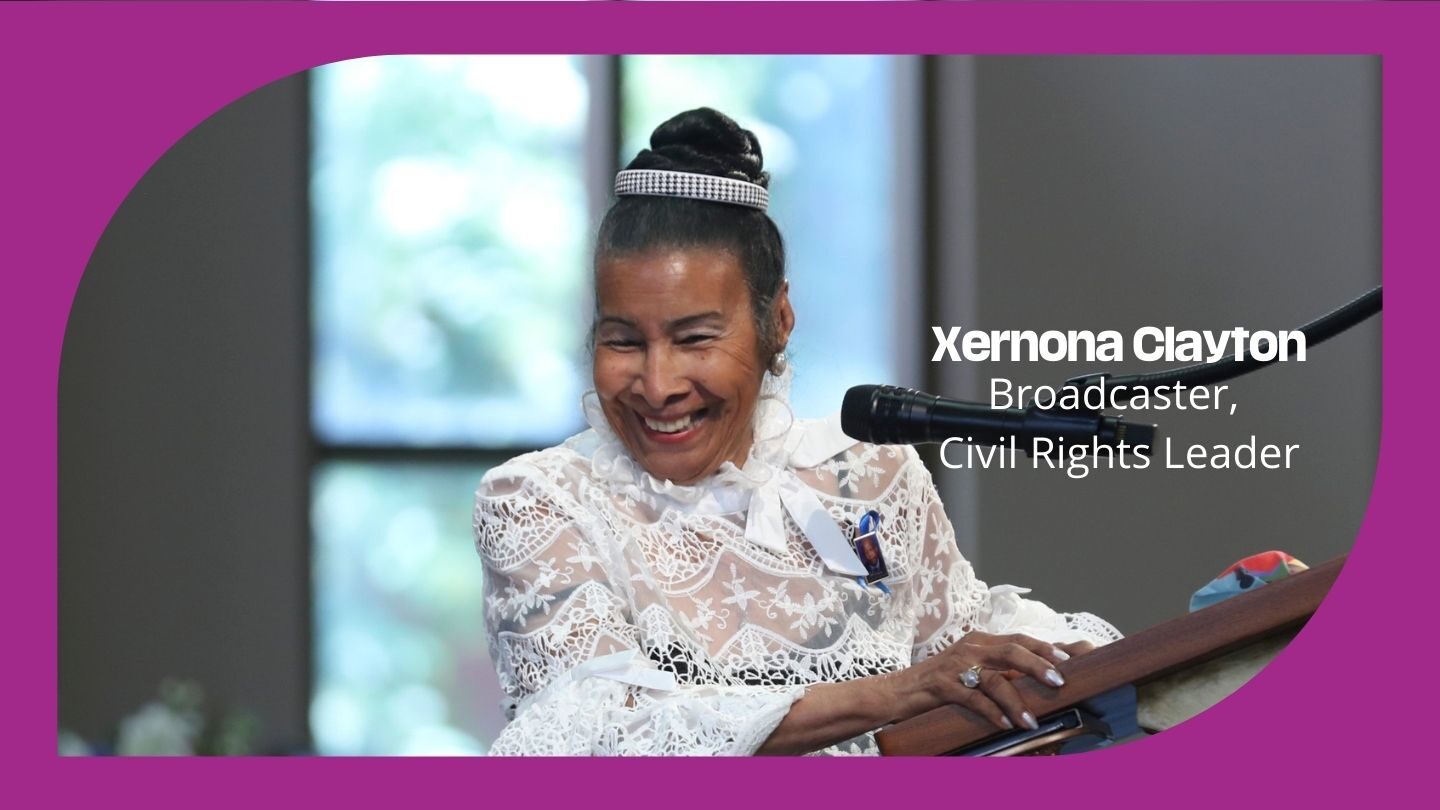
Xernona Clayton is a notable Civil Rights activist and broadcaster. Born in 1930 in Muskogee, Oklahoma, Clayton moved to Atlanta in 1965.
She took a position at the Southern Christian Leadership Conference and worked closely with Dr. Martin Luther King Jr., according to the National Women’s History Museum.
She became close with King and Coretta Scott King. Eventually, she would help establish the Civil Rights Walk of Fame at the National Historic site in Atlanta.
In 1966, she coordinated the Doctor’s Committee for Implementation, which led to the desegregation of hospitals in Atlanta.
When she began hosting “The Xernona Clayton Show” in 1967, she was the first African-American in the region to have her own talk show, according to Atlanta magazine.
During this time, Clayton hosted a now famous interview with Calvin Craig, the then-Grand Dragon of the Ku Klux Klan in Georgia. It began a conversation that led to him resigning from and renouncing the organization.
“I did want to change his attitude, because I was listening to Dr. King preach, saying that you’ve got to change a man’s heart before you can change his behavior. I never forgot that,” Clayton told Atlanta magazine in 2011 when reflecting on her interview with Craig.
She later moved to Turner, where she spent three decades as a corporate executive and established the Trumpet Awards. The annual program highlights the accomplishments of African-Americans in a number of fields.
— Courtney Kueppers
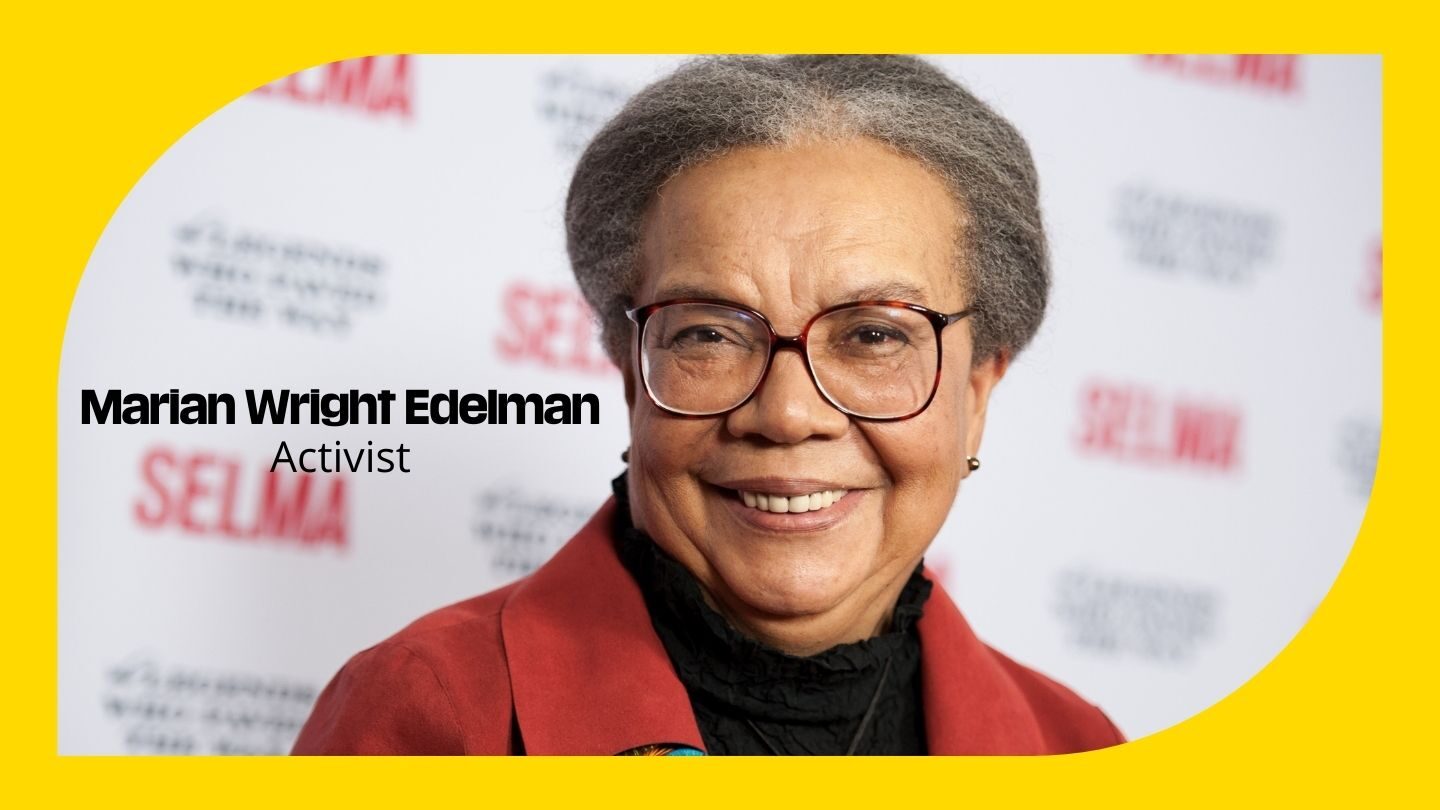
Marian Wright Edelman, a graduate of Spelman College, is the founder of the Children’s Defense Fund.
She was born in 1939 in South Carolina. While she was enrolled at Spelman, the Civil Rights Movement was beginning to take hold. She said seeing that motivated her to attend law school at Yale.
“It was the beginning of a student sit-in movement in Atlanta,” she told The Washington Post. “And you see what is happening, and, hell, you get mad. I applied to only one law school at the last minute.”
However, she said she didn’t like being at Yale, because she felt too removed from the movement. Her first year of law school, she went down to Mississippi on spring break.
Her experience there is what motivated to get through the rest of her time in school, she said.
Eventually, she became the first African-American woman admitted to the Mississippi Bar. She worked as a lawyer for the NAACP, according to biography.com.
In 1968, she moved to Washington, D.C., to help Martin Luther King Jr.’s effort on the Poor People’s campaign.
In 2018, after more than 40 years at the helm, Edelman transitioned from president to president emerita of the Children’s Defense Fund.
“She emerged as a leader. Brave, courageous, just smart. She wanted to do something not just about Civil Rights but about children — all children,” Rep. John Lewis said in a statement at the time. “I don’t know what our country would be like without the Children’s Defense Fund.”
— Courtney Kueppers
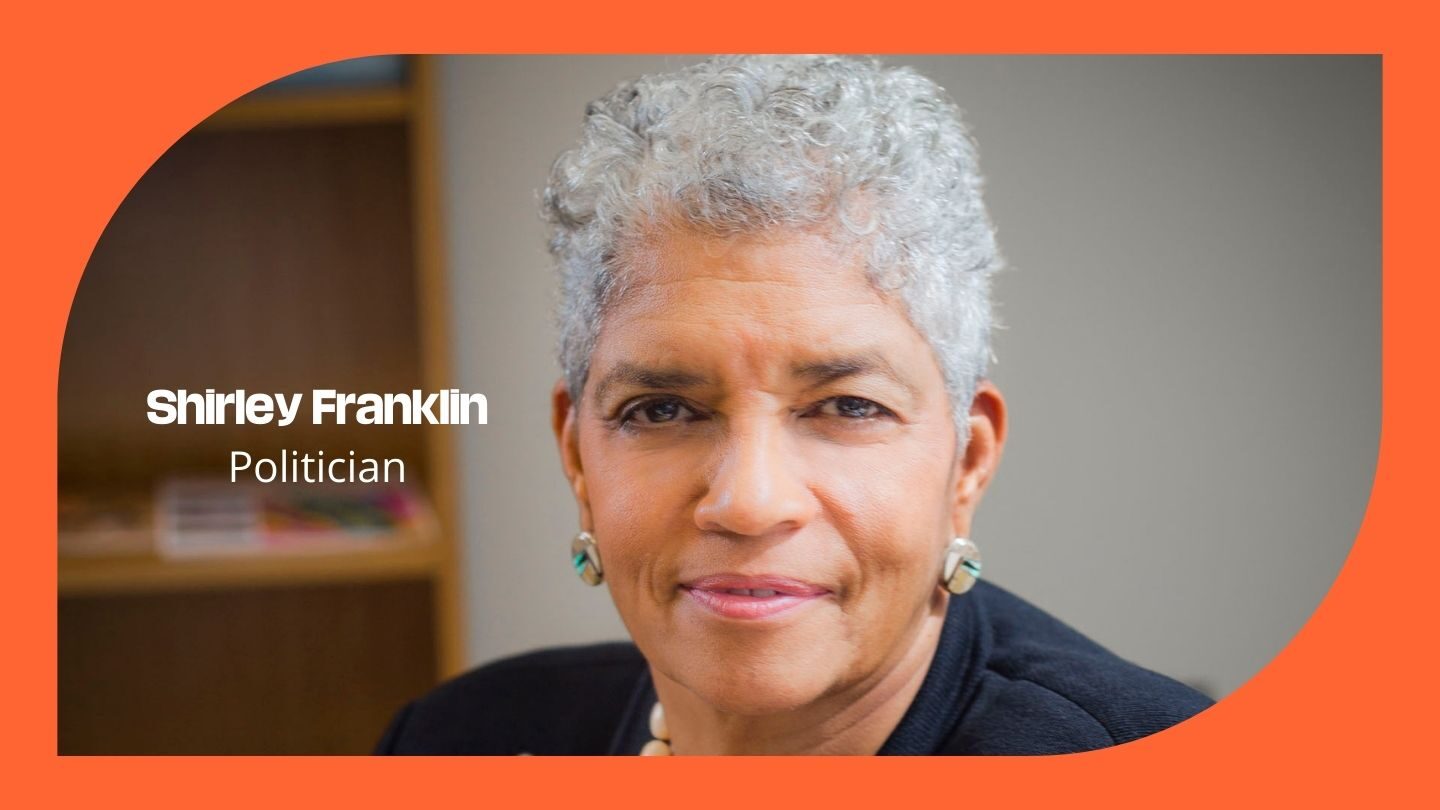
When Shirley Franklin was sworn in as Atlanta’s mayor in 2002, she was the first woman to ever hold that office.
Her tenure in the city’s top office, which lasted until 2010, was marked by efforts to improve the city’s sewer system and make Atlanta more environmentally friendly.
Franklin was born on May 10, 1945, in Philadelphia. She attended Howard University for her undergraduate studies, then went to graduate school at the University of Pennsylvania.
Franklin first moved to Atlanta in 1972, according to an interview she gave with the Atlanta Journal-Constitution. Prior to her own run for mayor, she worked for both Maynard Jackson and Andrew Young’s mayoral administrations.
In office, Franklin focused much of her attention on the city’s infrastructure, as she promised when campaigning. She was the self-proclaimed “sewage mayor.”
In a 2014 interview with the Atlantic, Franklin said she wishes she would have done more to address inequities.
“I regret that I didn’t do more. What I could have done is been a stronger advocate,” she said. “The first and easiest thing to do would have been to use the bully pulpit to talk about the importance of reaching back and helping people at the lowest end.”
Franklin has largely stayed out of the spotlight since leaving office. However, in the hotly contested 2017 mayoral election, Franklin made news when she endorsed Mary Norwood over her then opponent Keisha Lance Bottoms.
“For me, race was not the first issue,” Franklin said at the time. “Character, transparency and integrity are the first issues for me. Some of my friends who’ve known me for a long time say this might hurt my legacy because I’m supporting a white woman over a black woman, but I think that’s yesterday’s news.”
— Courtney Kueppers
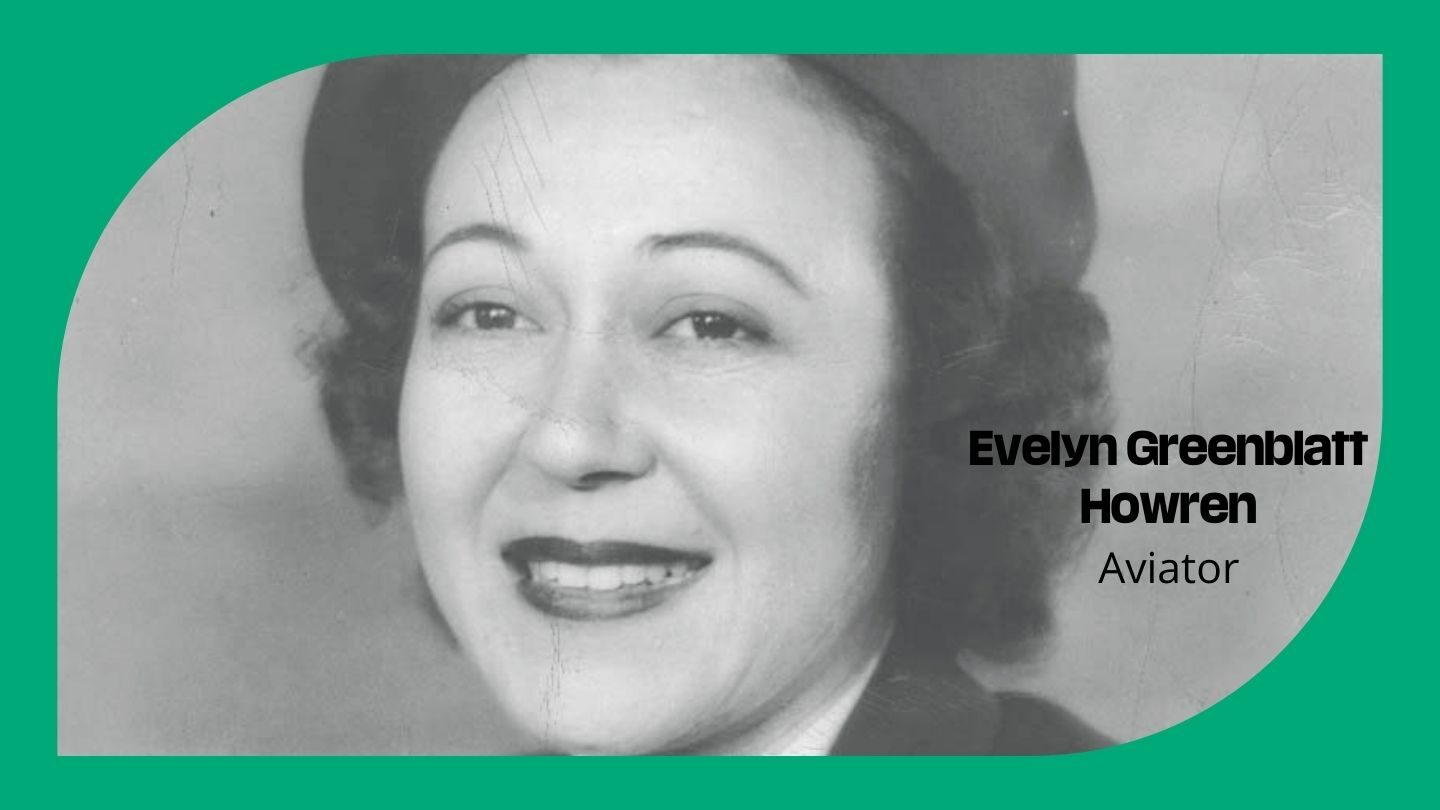
Born in Atlanta in 1917, Evelyn Greenblatt Howren became a pioneering pilot.
She graduated from The Westminster Schools in 1934 and then attended Vanderbilt, according to Atlanta’s Breman Museum, which holds an archive of her papers.
In 1939, Howren began her flying career. She trained at Candler Field, where Hartsfield-Jackson Atlanta International Airport is today, according to the museum.
In the early 1940s, she was one of the first members of women Air Traffic Controller trainees and eventually became one of 30 members of the first class of Women’s Air Service pilots (WASPs) in World War II.
She was 20 years old when she served in the 319th Squadron Army Air Corps Women’s Flying Detachment, according to an article published in the South Florida Sun Sentinel.
“They were trying to find out if women could handle military aircraft,” she said in the 1983 article. “After we graduated, we had proven the point. There was not one scratch on a plane. It was remarkable.”
However, it would be decades before those contributions were recognized. It wasn’t until 1977 that the government recognized the WASPs as veterans. At that time, they were given an honorable discharge and V.A. benefits.
“It’s only right. We were subject to everything the male pilots were subject to. It took 35 years for the government to decide we had done ‘something,’” she told the newspaper.
After the war, she returned to civilian life and became a flight instructor.
She was also one of the organizers of the Women’s Aero Club of Atlanta in 1947, according to the Breman Museum.
Greenblatt died in Atlanta in 1998 at the age of 80.
— Courtney Kueppers

Formed in Atlanta in the mid-’80s, the Indigo Girls are still touring and making music more than three decades later. Comprised of Amy Ray and Emily Saliers the Grammy Award-winning duo is known for their folk rock sound.
According to their website, the two met as fifth and sixth-graders in Decatur and started singing together when they were in high school. They originally went by Saliers & Ray, but changed their name to Indigo Girls during their undergraduate years at Emory.
They’ve produced 15 original studio albums, three live records and even a Christmas album.
In addition to their music, both Ray and Saliers are outspoken activists. They’ve been known to champion LGBTQ causes, environmental issues and have called for abolishing the death penalty.
They both have also branched out on solo endeavors musically. Ray has put out six solo albums, including a couple of strictly country records.
In 2017, Sailers released her first solo record “Murmuration Nation.”
“I feel like this is a time of great growth for me and excitement and gratitude for all the opportunities that life is offering, and I’d like to just be ready and open to whatever inspiration comes along, and I can see a musical fitting into that,” she told WABE’s Lois Reitzes.
Indigo Girls have stayed true to their Atlanta roots. Saliers still lives in Decatur and has invested in local restaurants, including to help launch the original Flying Biscuit.
“I’m just a person. I don’t feel like a rockstar … the truth is I’m a work in progress, I know that,” she told Reitzes.
Ray lives in north Georgia and is the founder of the Atlanta-based nonprofit independent record label, Daemon Records.
— Courtney Kueppers
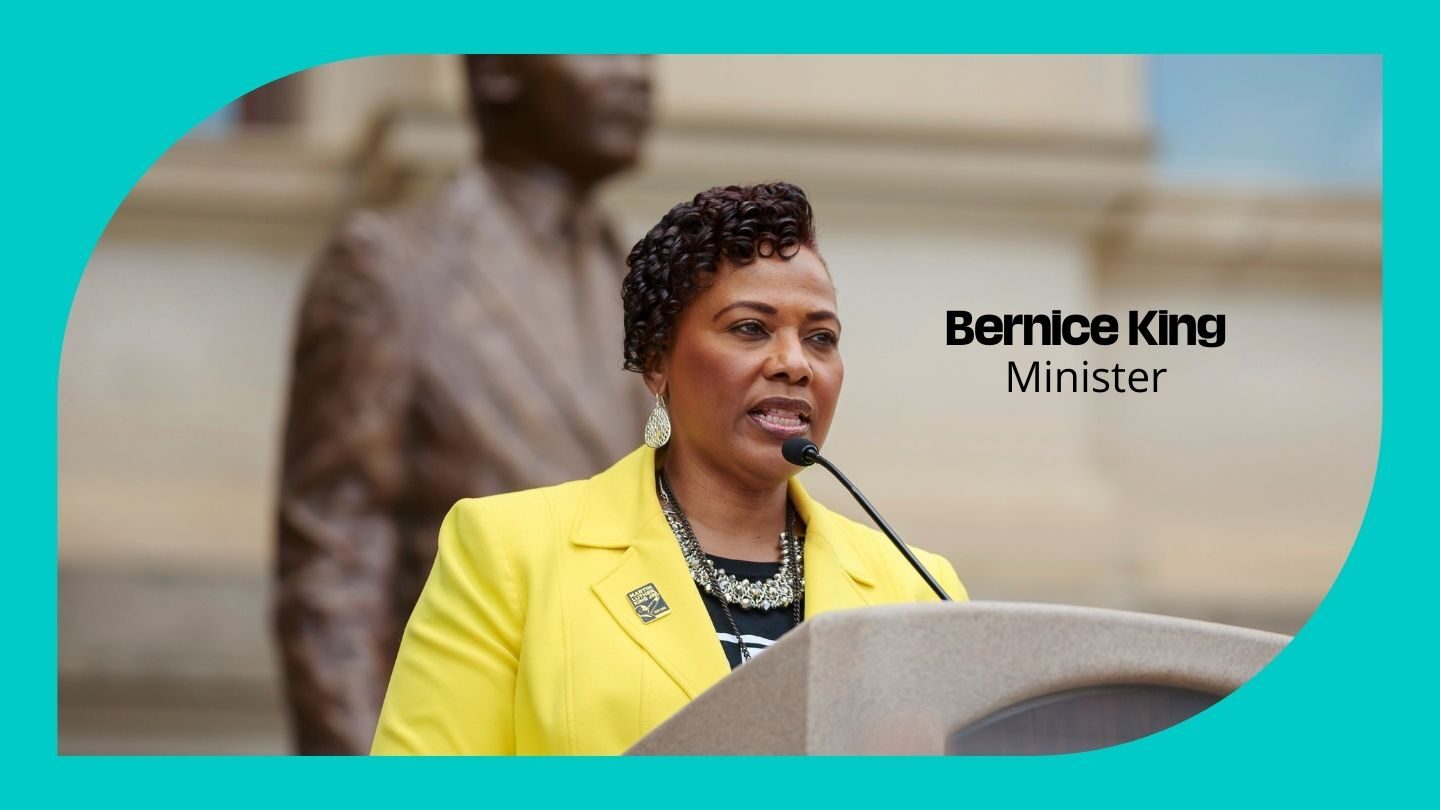
On April 9, 1968, many worldwide mourned along with Bernice King — a 5-year-old comforted by her mother, Coretta Scott King, during the funeral of her father at Atlanta’s Ebenezer Baptist Church. The Rev. Martin Luther King Jr., the iconic Civil Rights leader, had been assassinated less than a week earlier.
Throughout her life, Bernice has been inspired by the activism of both her parents and their fight for civil rights.
“What was once something I resented, I now feel honored to carry,” she told Atlanta Magazine in 2013 about the King legacy.
Bernice Albertine King was born March 28, 1963, in Atlanta, the youngest of the King children – following siblings Yolanda, Martin III and Dexter.
Bernice, who attended Atlanta’s Spelman College and Emory University, would follow in the footsteps of her father, becoming a minister and delivering her first sermon at a young age.
She also would take her own path – earning a law degree and becoming a member of the State Bar of Georgia.
As a minister, orator and leader, the Rev. Bernice King has given her views on such issues as empowering youths, same-sex marriage, former President Donald Trump’s push for a border wall, voter access issues, gun control, school safety and how we are all connected as part of a “global community.”
One of her biggest missions is reminding people about the important contributions her mother, who she calls the “architect of the King legacy,” made to the Civil Rights Movement and to continuing Martin Luther King’s vision and teachings.
“I’m always concerned about her getting lost as we continue to advance my father’s legacy,” she told Atlanta Magazine.
Bernice honors both parents – continuing their work to educate others on nonviolence principles — as the CEO of the Martin Luther King Jr. Center for Nonviolent Social Change in Atlanta, an organization founded by her mother.
In a 2013 interview with WABE’s Rose Scott, Bernice stressed that “we have to reconnect with the struggle my father was leading.”
“I think it is really about remembering the work and continuing the work, and starting where he left off.”
— Darlene Earnest
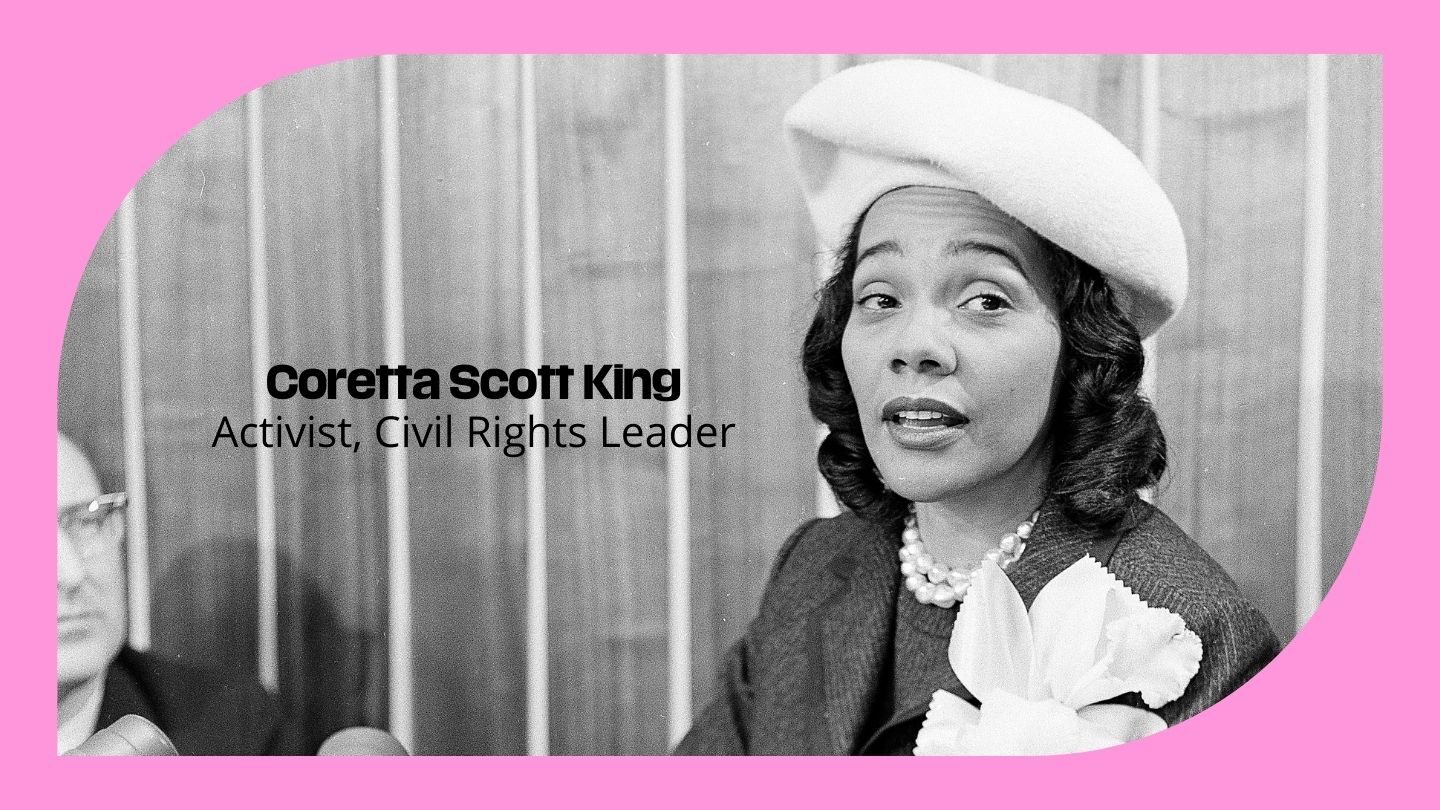
Coretta Scott was born in Marion, Alabama, on April 27, 1927. Her parents, Obadiah and Bernice McMurray Scott, were farm owners who wanted the best education for their children, according to the King Institute at Stanford University.
Coretta attended Lincoln High School in Marion and took an interest in music. She learned numerous instruments and took voice lessons, according to the King Institute.
She graduated valedictorian and went on to study music at Antioch College in Yellow Springs, Ohio, according to the King Center in Atlanta. Later, she studied concert singing at Boston’s New England Conservatory on Music and received a degree in voice and violin.
In Boston, she met Martin Luther King Jr., who was studying for his doctorate in systematic theology at Boston University, according to the King Center. The couple married on June 18, 1953, and moved to Montgomery, Alabama, in September 1954.
Both Coretta and Martin were fully committed to nonviolent social activism and seemed to shape their lives around the cause.
During her husband’s career, Coretta spent much of her time looking after their four children, according to the King Center. She participated in movement work, including speaking before church, college and other advocacy groups. She also used her musical gifts to organize a series of “Freedom Concerts” to raise money for the SCLC.
The end of Martin’s life on earth did not mean the end of the movement for Coretta. Only days after her husband’s death, Coretta led a march for sanitation workers in Memphis, Tennessee, according to the King Institute.
She stood in for her husband at an anti-Vietnam War rally in New York and helped launch the Poor People’s Campaign in May 1968.
In Atlanta, she founded the Martin Luther King Jr. Center for Nonviolent Social Change, also known as the King Center.
Coretta Scott King died in 2006 at the age of 78.
— Kaitlyn Lewis

“She’s as real as it gets. … It’s all about that voice, her incredible gift from God.” – Singer Mariah Carey, in 1996 at the ceremony to induct Gladys Knight and the Pips into the Rock & Roll Hall of Fame.
Before she was celebrated worldwide as the “Empress of Soul,” Gladys Maria Knight was a daughter of Atlanta.
Born May 28, 1944, Knight began her singing career early – at the age of 4 at Atlanta’s Mount Moriah Baptist Church. At 7, she won Ted Mack’s “The Original Amateur Hour” TV show contest.
Knight and the Pips – her brother Merald “Bubba” Knight and cousins Edward Patten and William Guest – would achieve international fame at Motown Records with such hits as, “I Heard It Through the Grapevine,” “Neither One of Us (Wants to Be the First to Say Goodbye)” and “Friendship Train.”
The group eventually left Motown, but the hits didn’t stop: “I’ve Got to Use My Imagination,” “The Best Thing That Ever Happened to Me,” “Save the Overtime for Me” – and, of course, “Midnight Train to Georgia.” (Originally, the train was a plane, Georgia was Houston, and it was all inspired by a Farrah Fawcett comment, according to songwriter Jim Weatherly.)
Gladys Knight and the Pips “are one of the most respected and longest-lived soul groups, with hits spanning four decades,” according to the Rock & Roll Hall of Fame website.
Knight, who was named one of Rolling Stone magazine’s 100 Greatest Singers of All Time, pursued a solo singing career and added the titles of actress (TV and film), businesswoman (Gladys Knight’s Chicken and Waffles restaurants were a longtime staple in metro Atlanta) and author to her celebrated resume.
The Grammy winner even has her own highway. In 2015, a portion of Ga. 9 that runs through Atlanta was renamed Gladys Knight Highway.
Knight accepted an invitation to perform the national anthem at the Super Bowl in Atlanta in 2019. Many criticized the decision, amid protests over the alleged blacklisting of former NFL quarterback Colin Kaepernick.
“I am proud to use my voice to unite and represent our country in my hometown of Atlanta,” Knight said in a news release.
In the tunnel of Mercedes-Benz Stadium after her performance, Knight, who thanked those who supported her during the controversy, described her rendition of “The Star-Spangled Banner” as an “exciting moment” and “one to remember,” according to The Associated Press.
— Darlene Earnest
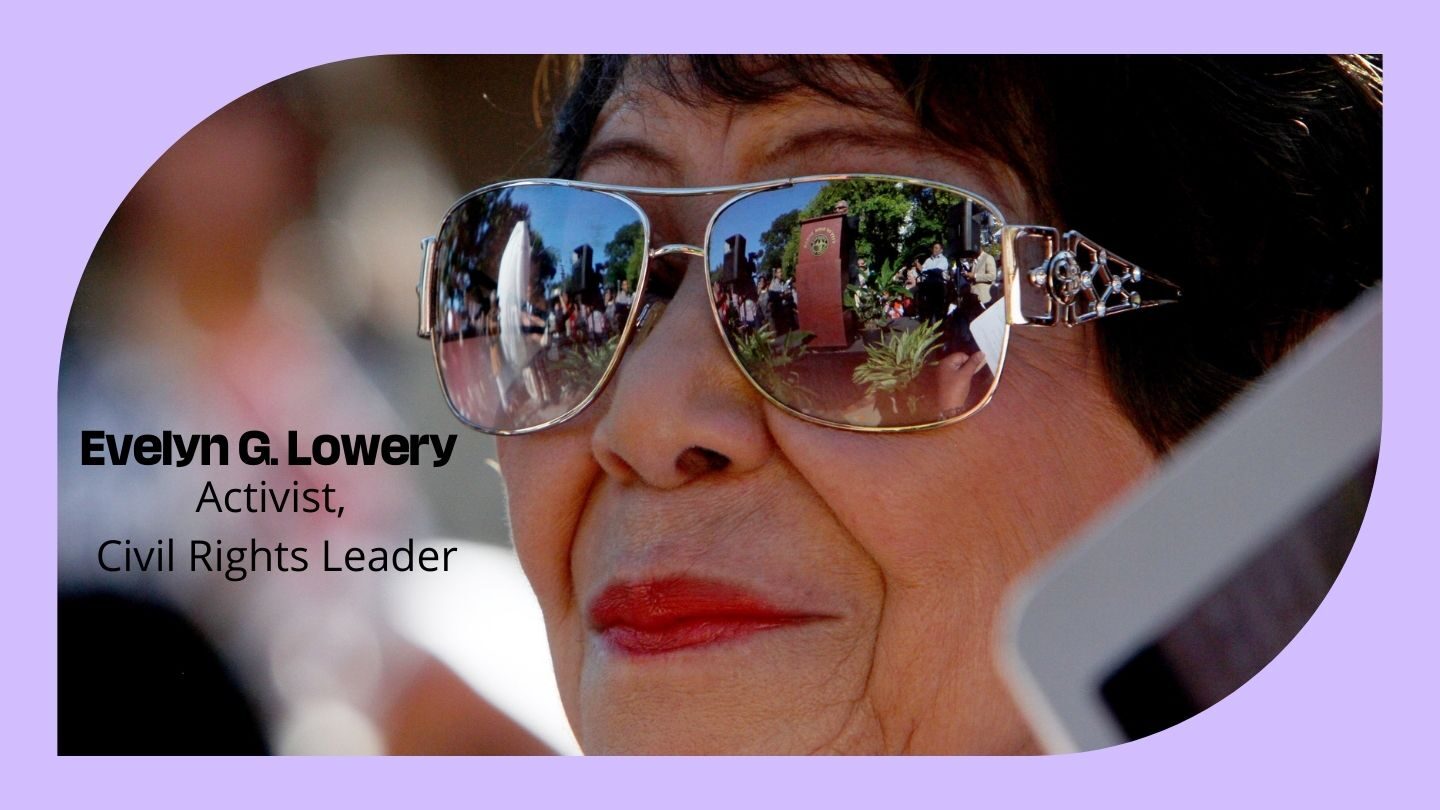
Evelyn Lowery was an active participant in the Civil Rights Movement. In the 1950s, Lowery participated in demonstrations in Mobile and Birmingham. In 1965, she marched from Selma to Montgomery.
While attending Atlanta’s Clark College, she was set up on a blind date with the Rev. Joseph Lowery. The two dated for a year and then were married in 1948, according to the AJC.
The couple was active in every step of the movement. As he rose in prominence as a leader within the movement, she focused on establishing SCLC/Women, Inc., the sister organization of the Southern Christian Leadership Conference,
Through that organization she worked to establish mentoring programs and raised funds for scholarships for high school students, as well as awareness for HIV/Aids initiatives, according to the International Civil Rights Walk of Fame’s website
She also established the Drum Major for Justice Awards, which annually honor recipients who live in the mold of King.
In 1985, Lowery said “I wouldn’t give anything for the experiences I’ve had,” according to the AJC.
Lowery died in 2013 due to complications from a stroke.
“She was a faithful supporter of the movement and supporter of the leadership of her husband,” Rep. John Lewis told the AJC at the time of her death. “She was one of the women who was there with Mrs. (Coretta Scott) King and Dr. (Martin Luther) King and Mrs. (Juanita) Abernathy.”
— Courtney Kueppers
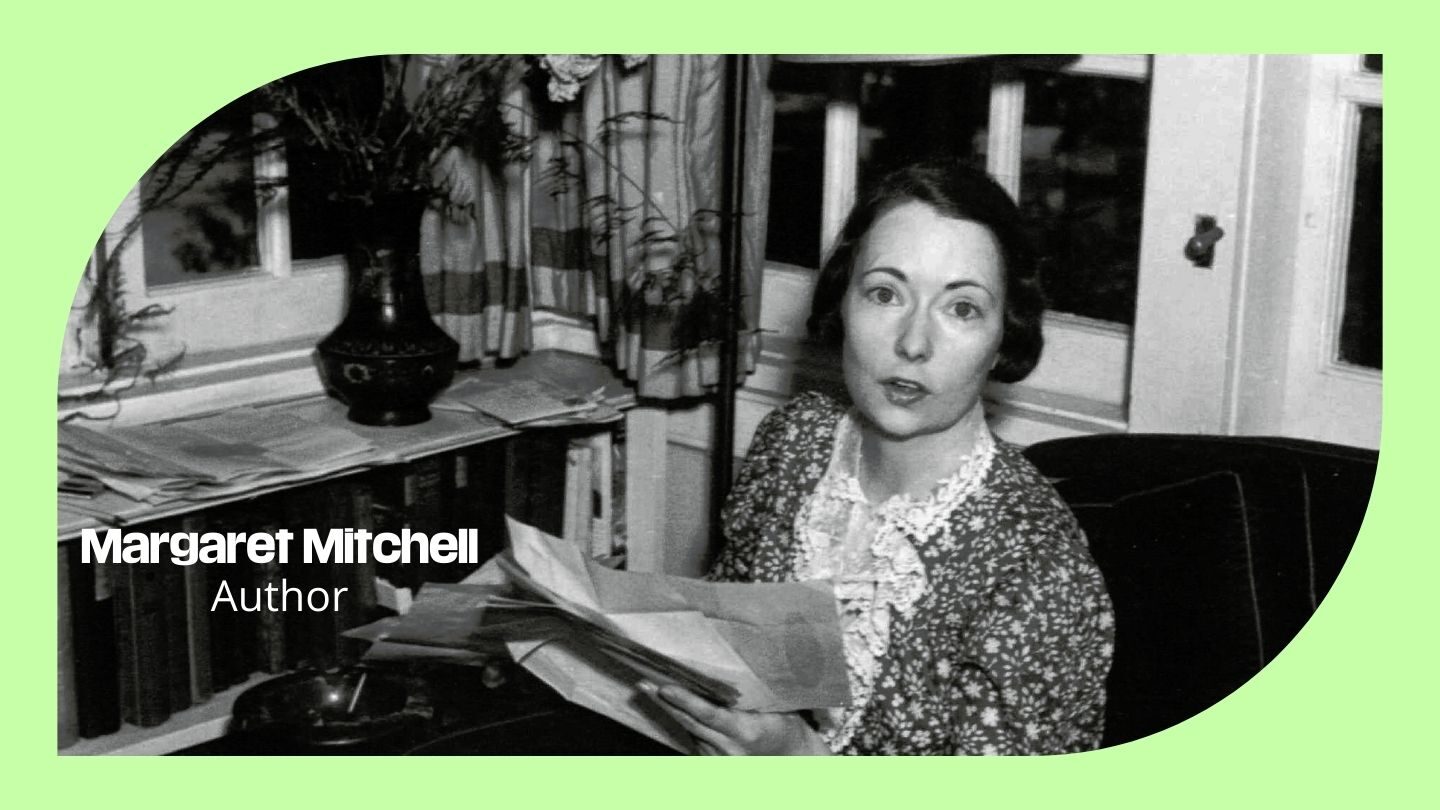
Margaret Mitchell is arguably the South’s most celebrated storyteller.
Without her, most Americans, regardless of age or origin, would not have such a distinct imagery of the war-torn South instilled by “Gone with the Wind.”
Despite being born more than 35 years after the end of the Civil War, Mitchell was shocked to learn of the southern defeat when she was 10 years old, having heard the misguided tales of Confederate glory all her young life.
Wildly curious and an avid reader, she showed a proclivity for writing from an early age. After an ankle injury halted a modest career in journalism, Mitchell’s husband John Marsh bought her a typewriter as encouragement to write a novel of her own.
For three years, Mitchell toiled in their apartment on Crescent Avenue, now known today as the famous Margaret Mitchell House, writing the bittersweet love story that would come to define America’s complicated race relations during the latter part of the 19th century.
With the immediate success of “Gone with the Wind” followed a Pulitzer Prize, a National Book Award as well as the major motion picture starring Vivien Leigh and Clark Gable. Mitchell, who never quite embraced her fame, prioritized answering personal fan mail to holding public events.
At the age of 48, Mitchell’s life was tragically cut short when a speeding car struck her while crossing Atlanta’s famous Peachtree Street on foot.
Shortly after her only novel published in 1936, Margaret Mitchell had said, “If Gone with the Wind has a theme, it is that of survival.”
Appropriately, the epic still endures as the principal depiction of the South during the Civil War and its immediate aftermath.
— Rebecca Etter

Monica became a household name when she was just a teenager.
In 1995, the singer broke music records by becoming the youngest recording artist to place on the top of the Billboard R&B singles chart twice within a year, according to Encyclopedia.com.
Monica Denise Arnold was born in College Park, Georgia on Oct. 24, 1980.
The Atlanta native had a thriving music career while she was in high school. At 14, “Don’t Take it Personal (Just One of Dem Days)” made it to No. 2 on the Billboard Hot 100 chart in 1995.
By the time she graduated from Atlanta Country Day School at 16 years old, she had already gone on tours for her music.
Winning a talent contest began her road to fame because she caught the attention of record producer Dallas Austin, who was in attendance. In 1992, he signed her to Rowdy Records label.
Since then, she’s released widely-recognized albums, such as “Miss Thang” in 1995 and “Still Standing” in 2011. The song “The Boy Is Mine” recorded with Brandy won the duo a Grammy Award for Best R&B Performance by a Duo or Group with Vocals in 1999.
In recent years, she has made appearances in shows and movies, such as “Almost Christmas.” She also released her eighth studio album “Code Red” in 2015, and a single “Trenches” in 2020.
— Lauren Booker
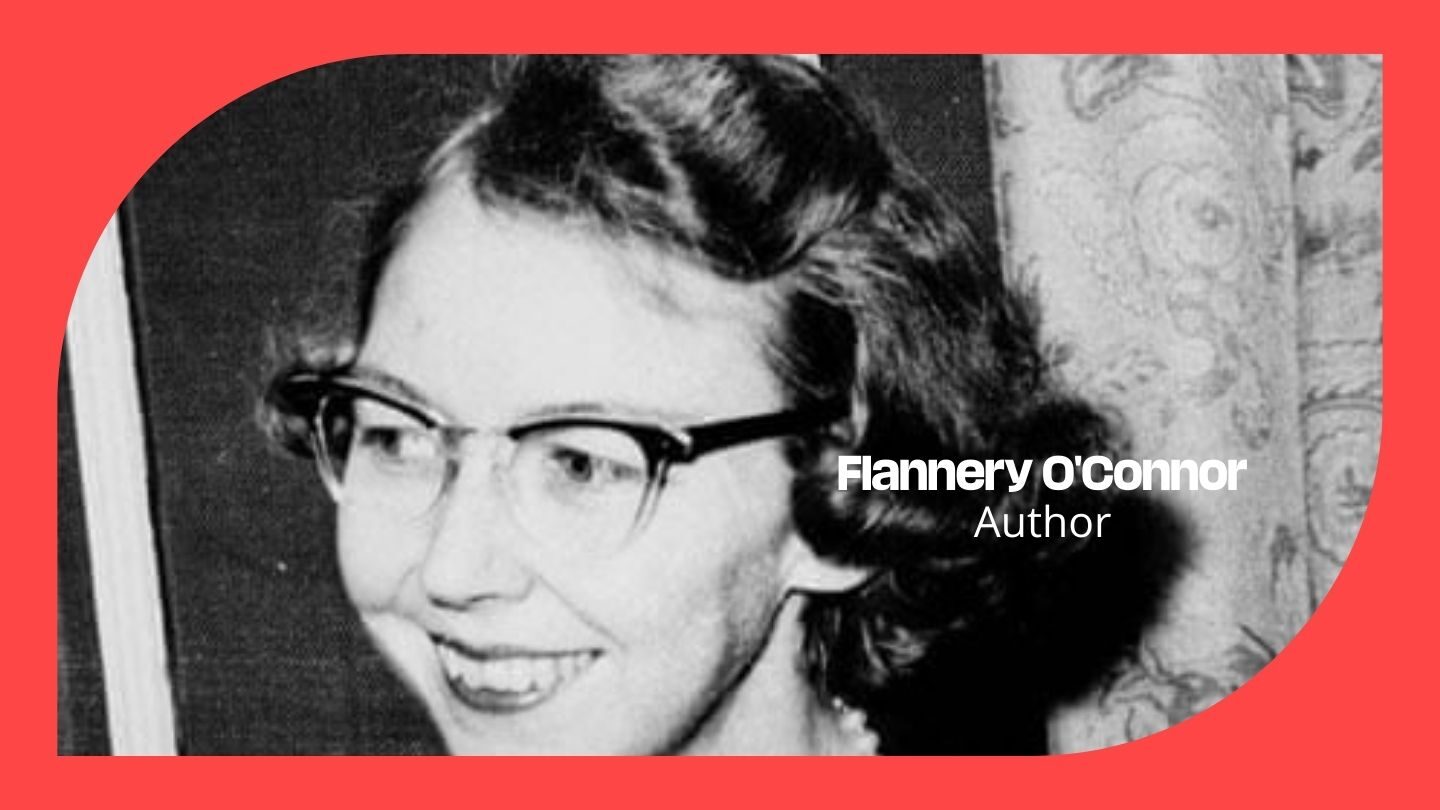
Flannery O’Connor is celebrated as one of the most powerful short story writers of the 20th century.
She was born in Savannah, but later moved with her family to a farm in Milledgeville as her father’s health deteriorated due to lupus.
After graduating college, O’Connor went on to study creative writing at the prestigious Iowa Writer’s Workshop. O’Connor is known as a Southern Gothic writer for her stimulating narratives that combine grotesque scenes of southern life with that of religious divinity.
A devoted Catholic all her life, it was common for O’Connor to produce characters that were wicked yet pious, sometimes masking one with the other until the climax of the story.
In her short story, “Good Country People,” a devious stranger posing as a bible salesman is able to wreak havoc on a rural family blinded by their own opposing religious and societal views.
O’Connor often used her sardonic humor to expose the repulsive nature of religious hypocrisy.
As her own health suffered from the same disease that eventually killed her father, her devotion and discipline to the craft of writing only intensified.
In the last years of her life, she prioritized writing and church-life above everything else, publishing two novels and more than two dozen influential short stories, which continue to captivate and challenge readers today.
Recently, modern-day scholars and literary enthusiasts are attempting to reckon with O’Conner’s racist remarks – and perhaps more discouragingly – how they were glossed over throughout history.
— Rebecca Etter

When Chef Ria Pell passed away suddenly in 2013, it sent shockwaves through the Atlanta cultural scene.
Only 45 years old and at the height of her career, Pell’s death was devastating to the many communities she had served as a leader and inspiration. Covered in tattoos and usually dressed in her staple overalls and a welcoming grin, Ria was far from the conventional chef.
She liked to party, listen to punk rock and bring people together, usually with hearty southern fare. Originally from New Jersey, she built her culinary portfolio by working in professional kitchens throughout Atlanta.
In 2000, she turned a shuttered liquor store on Memorial Drive into Ria’s Bluebird Café, a beloved breakfast haven where the Country Fried Tempeh is still just as celebrated as the beef brisket. Pell is credited with revitalizing the Grant Park area and Atlanta’s somewhat stagnant food scene.
In 2012, she solidified her status as a celebrity chef by winning Food Network’s show “Chopped” with an ingenious and eccentric combination of Southern and Danish cuisine.
Beyond her culinary exploits, Ria’s work within the LGBTQ community earned her the title of Atlanta’s “gay mayor.”
In the years since her death, a Facebook page named Remembering Ria still hosts frequent tributes and has more than 5,000 followers. It’s rare to drive by Ria’s Bluebird Café and not see a substantial line of people waiting for a chance to indulge in her legendary pancakes.
To say that Ria’s legacy has persisted would be an understatement. Her belief that food could unite despite anything continues to bring people together to this day.
— Rebecca Etter
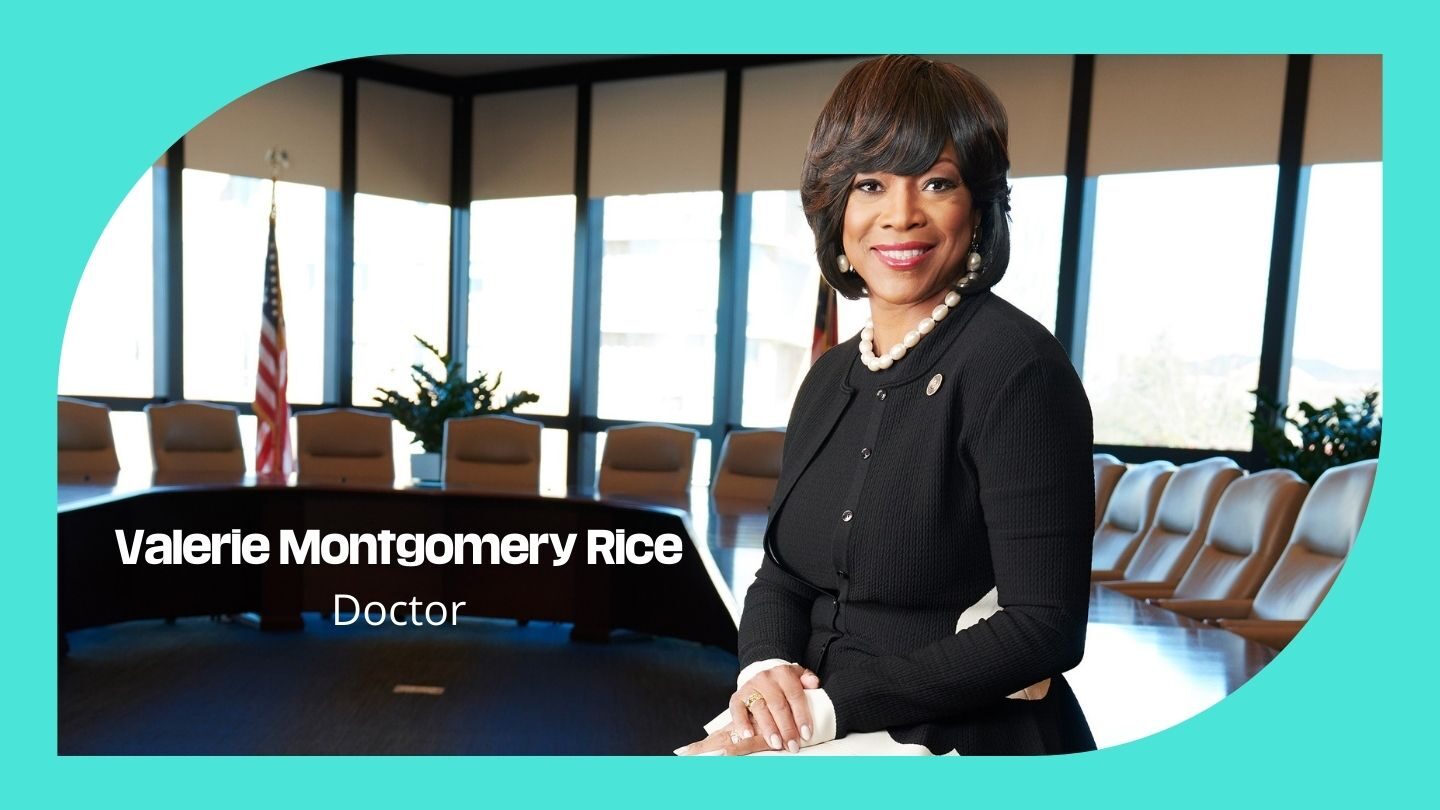
Dr. Valerie Montgomery Rice has committed her career to making health care more equitable.
She is just the sixth person, and first woman, to serve as president of the Morehouse School of Medicine.
“I’m from Georgia, so of course, I understand the history of Morehouse College and Morehouse School of Medicine; I also appreciate that women have not always had equal opportunity and so, me sitting in this role, I have been able to add additional perspective on why it’s important to be very inclusive as we lead the creation and advancement of health equity,” she said in a 2018 Atlanta Voice article.
Before taking the lead, she worked as a renowned infertility specialist and researcher, she most recently served as dean and executive vice president of the medical school since 2011, according to school’s website.
“We are the ones we have been waiting for,” she said in 2014 after assuming the position, according to Saporta Report. “We have a lot of influence. We need the Morehouse School of Medicine. If we don’t address the health disparities, who will?”
A Georgia native, Montgomery Rice holds a bachelor’s degree from the Georgia Institute of Technology, a medical degree from Harvard Medical School and an honorary degree from the University of Massachusetts Medical School, according to her online bio.
— Courtney Kueppers
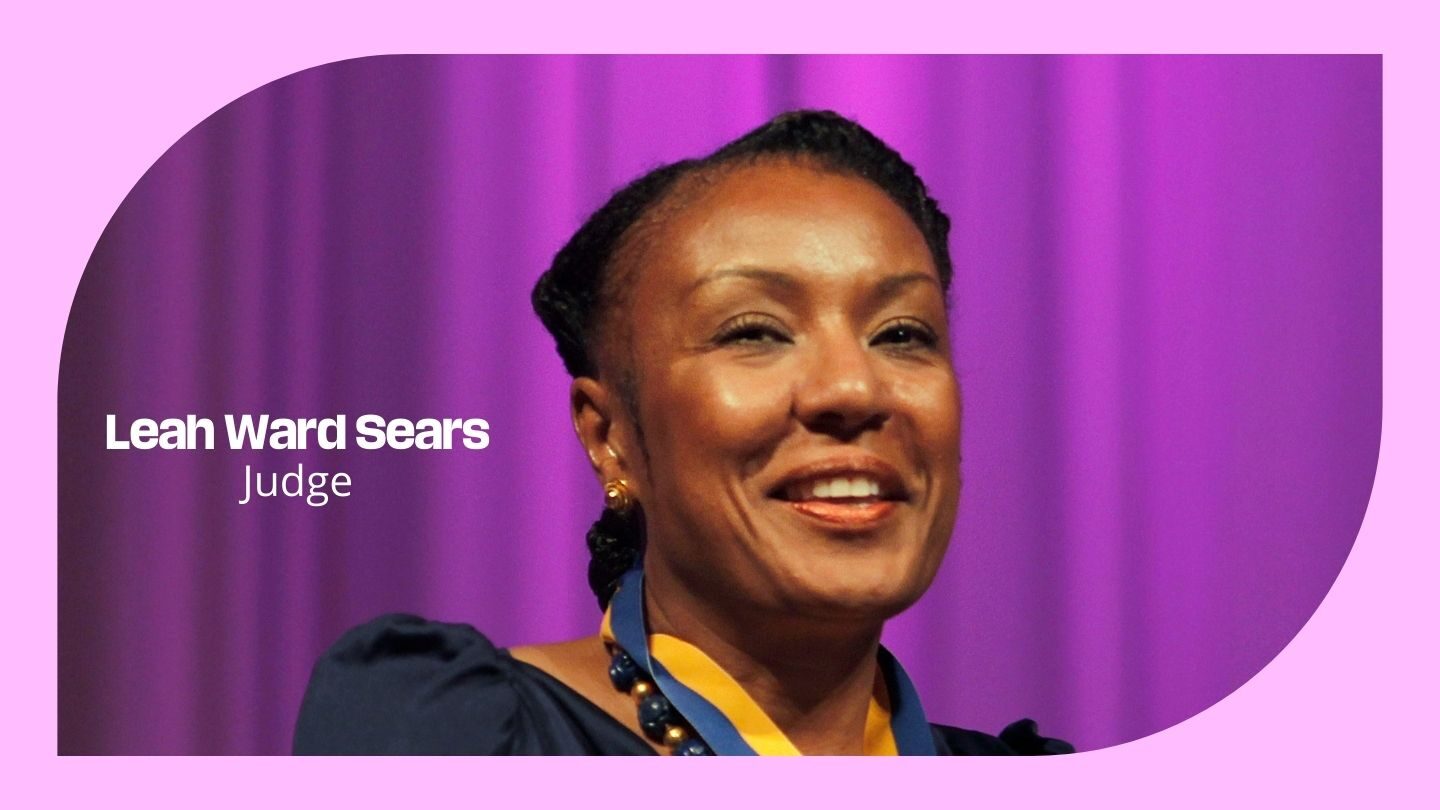
Leah Ward Sears’ life is marked by “firsts.” From being the first black cheerleader at her Savannah high school to being the first woman to sit on Georgia’s Supreme Court.
In 2005, Sears became the first African-American woman to be the chief justice of the state’s high court.
When then-Gov. Zell Miller appointed Sears to the court in 1992, she became the first woman and youngest justice on the bench, according to the New Georgia Encyclopedia.
She served as the court’s chief justice until 2009, when she announced she would leave to pursue other opportunities.
Sears received her B.S. degree from Cornell University and J.D. from Emory University School of Law, according to an online bio.
It’s been well documented through the years that, despite different political leanings, Sears maintains a personal friendship with U.S. Supreme Court Justice Clarence Thomas. The two both hail from southeast Georgia.
She was twice on President Barack Obama’s shortlist for Supreme Court nominations.
“I believe I was considered because I had shown that I had a solid understanding of the Constitution and laws of the United States and how they should be applied,” she told Atlanta Magazine in 2015.
Since leaving the court, Sears has returned to private practice, served on boards throughout Atlanta and spoken about expanding opportunities.
In 2016, she spoke about making the court more diverse.
“When you’re crafting the laws of the land it’s necessary to get a whole host of different perspectives, and one group of people can’t provide those different perspectives,” she said.
— Courtney Kueppers

Alana Shepherd took a personal tragedy and turned it into a chance to help others. In 1973, her son James was paralyzed from the neck down in a bodysurfing accident in Brazil.
Upon his return to Atlanta, Shepherd and her husband Harold were discouraged by the care options for their son, who was just 22 years old at the time of the accident.
The event put into motion the idea of establishing a care facility in Atlanta. She went to work raising funds from friends. Harold had been a successful businessman, so they knew a lot of people able to give. She said in a 2014 AJC article that it may not have been possible without those personal connections.
“It helped that I’m pretty single-minded,” she told the newspaper. “I hate to fail at something. I never raised money before, but I learned.”
They partnered with Dr. David Apple and in 1975, the Shepherd Center was opened as a six-bed unit. The waitlist grew almost immediately, according to the center.
Today, the not-for-profit Shepherd Center is a world-renowned, 152-bed rehabilitation hospital. It specializes in rehab for people with spinal cord and brain injuries, according to the Georgia Historical Society.
“I feel very fortunate that these leadership opportunities just dropped on me,” Shepherd said during a 2019 lecture at the University of Georgia. “[Everyone said] somebody will start something, and somehow that somebody became us.”
In 2011, Shepherd, along with her husband and son, were awarded honorary doctorate degrees from the university. Through the years, Shepherd has remained involved on the board of the hospital.
She’s also been involved in the Rotary Club of Atlanta, was the first woman elected as chair of the Buckhead Coalition and worked to bring the International Paralympic Games to Atlanta in 1996, according to GHS.
— Courtney Kueppers




